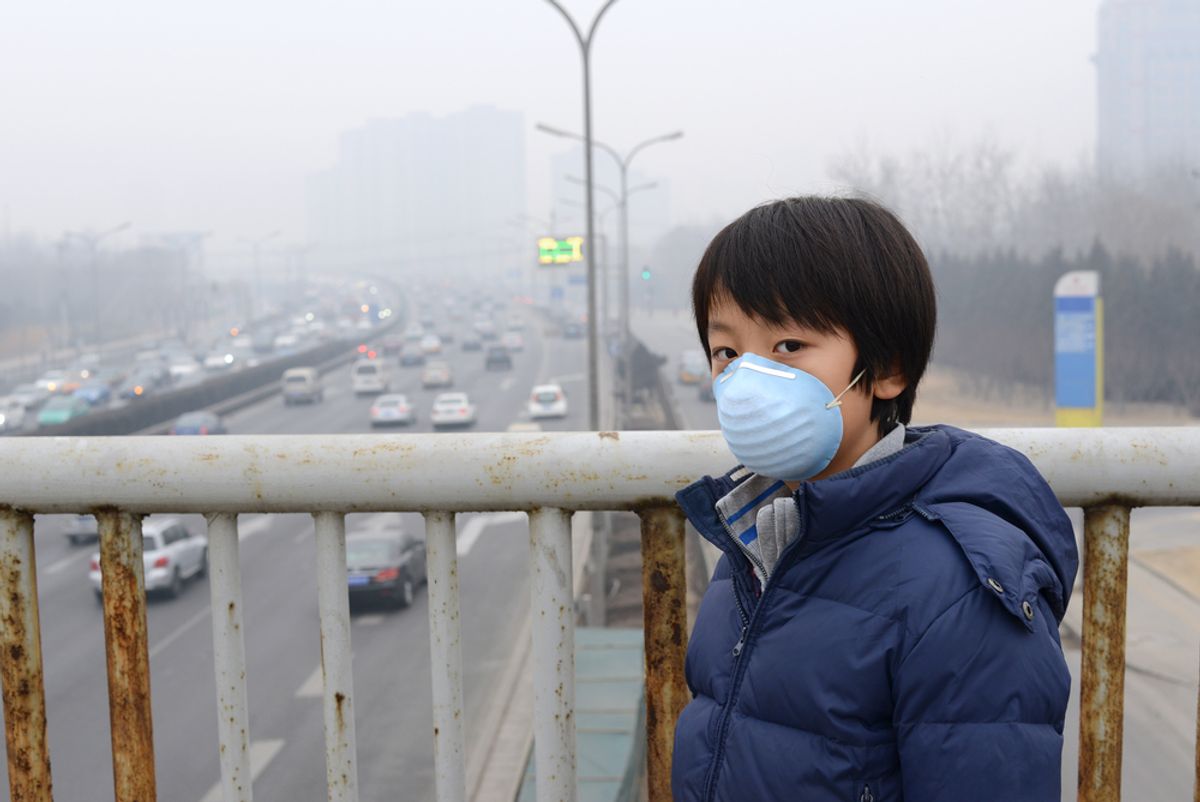As anyone's who's tried to get a clear view in China's smog-choked cities can attest, the consequences of the country's dependency on coal are impossible to ignore. But according to new research compiled by the Natural Resources Defense Council, it's even deadlier than many imagine: in 2012 alone, they found, suffocating air pollution caused by coal burning was responsible for 670,000 premature deaths.
The study, undertaken with researchers from Tsinghua and Peking universities and government-affiliated institutions, attempts to put numbers on the "true" cost of coal -- its influence on water, the environment, climate and human health throughout its lifecycle.
They found that 70 percent of China's population lives in regions where air pollution levels exceed the World Health Organization's recommended limits. Last year, the WHO officially classified air pollution as a carcinogen, and a leading one, at that. According to this study, living in the most heavily-polluted cities, like Beijing, increased people's risk of developing lung cancer by an astonishing 10 to 15 percent.
Coal, which makes up about 65 percent of China's energy mix, is unquestionably responsible. The study found that coal and coal-related activities accounted for 50 to 60 percent of PM 2.5 pollutants -- the ones that pose the greatest risk to human health.
If you're going to put a price on coal, the authors conclude, you're going to have to take that into account. All told, they calculated that for each ton of coal, which in 2012 was worth $100, you'd need to take on an extra $43 in social costs -- an amount way beyond the $5 to $8 "environmental tax" that coal producers are required to pay.
This study came out last week (for the news cycle, a lifetime ago), but looking at it from the other side of the U.S. and China's historic climate deal, it seems particularly prescient. Coal accounts for around 80 percent China's CO2 emissions, the NRDC notes. Cutting down on its use -- China's pledged to ramp up its production of renewable energy to 20 percent by 2030 -- is going to benefit everyone.

Shares